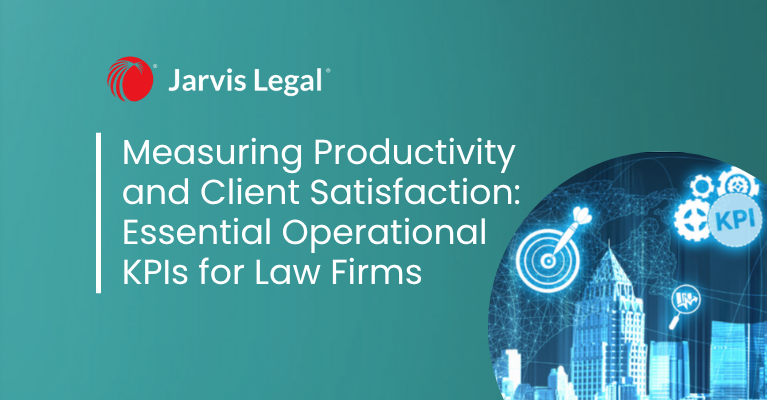The Knowledge Foundations of AI-Assisted Drafting Generative AI is rapidly reshaping legal drafting across Europe Law firms are experimenting with new tools, new workflows and new expectations around...
Sebastien Bardou, general manager of LexisNexis CEMEA International, says the next generation of agentic AI systems will help lawyers work more effectively In this Q&A, Sebastien Bardou, general manager...
As Generative AI (Gen AI) reshapes the profession, legal expertise alone is no longer enough. Tomorrow’s most valuable lawyers will blend legal knowledge with AI fluency - mastering the skills needed to...
Generative AI (Gen AI) has moved beyond the experimental stage. Across Europe, law firms and in-house teams are no longer asking whether to adopt AI but how to scale it responsibly and effectively. The...
Drawn from a Legal Geek talk by Sébastien Bardou, CEMEA International BU General Manager & VP Strategy at LexisNexis If the internet once promised to “change everything,” generative AI may finally be...

Beyond financial indicators, the performance of a law firm also relies on operational KPIs and client satisfaction metrics. These metrics help optimise time management and improve service quality, thereby directly influencing client loyalty and the firm’s long-term growth.
Productivity KPIs for Law Firms
Utilisation Rate and Billable Hours per Lawyer
Optimising billable time is a major lever of performance for law firms. To maximise this potential, set individualised and realistic goals for each lawyer. Encourage specialisation in high-value areas that allow for higher billing rates.
Train teams in effective time management and personal organisation. Identify and eliminate unproductive, time-consuming tasks. Invest in technological tools that automate administrative processes.
Regularly analyse the distribution of time among different types of cases. Regularly review how time is allocated across various types of cases, prioritising complex cases that yield more billable hours. Establish a mentoring system to help junior lawyers optimise their productivity.
Average Case Processing Time
The time taken to resolve cases is a crucial indicator of a law firm's efficiency. Rigorous monitoring of this metric helps identify bottlenecks in the workflow.
To reduce this turnaround time, consider adopting project management tools tailored to the legal sector. These solutions facilitate collaboration among team members and automate certain administrative tasks.
For instance, Jarvis Legal centralises case and task management while providing a clear overview of deadlines and the distribution of responsibilities, thereby optimising teamwork and productivity.
Client Satisfaction and Retention KPIs
Client Satisfaction Rate
Evaluating client satisfaction is fundamental for law firms. To obtain precise feedback, consider using online surveys after each resolved case. Ask targeted questions focusing on communication, legal expertise, and processing speed.
Analyse the comments received to identify strengths and areas for improvement. Train your team based on this feedback to refine your services continually.
Establish a star-rating system on your website to provide immediate visibility of overall client satisfaction. This transparency builds trust with prospects and enhances your expertise.
Do not hesitate to request detailed testimonials from your satisfied clients, thereby enhancing your brand image and attracting new mandates.
Client Retention and Recommendation Rate
Monitoring the retention rate provides valuable insights into the stability of your client base. Calculate it by dividing the number of recurring clients by the total number of clients over a given period. A high rate indicates strong retention.
To assess the recommendation rate, use the Net Promoter Score (NPS). This metric reveals the likelihood of clients promoting your services. A positive NPS indicates a base of satisfied and loyal clients.
Analyse these indicators on a quarterly basis to identify trends. A decline may signal the need to adjust your practices, whereas an increase validates your retention strategies.
These metrics directly influence the long-term growth of the firm. Loyal clients generate recurring revenue and attract new mandates through word-of-mouth.
Number of New Clients and Acquisition Rate
The influx of new clients is a crucial indicator of a law firm's growth. Carefully monitor the number of new mandates on a monthly or quarterly basis.
Calculate your acquisition rate by dividing the number of new cases by the total number of prospects contacted. A high ratio signals an effective development strategy.
Analyse your best-performing acquisition channels: referrals, your website, social media, or professional events. Focus your efforts on the most fruitful sources.
Evaluate the cost of acquiring a client by comparing your marketing expenses to the number of new mandates obtained. Optimise this ratio to maximize your return on investment and ensure profitable growth for your firm.
Operational KPIs - from lawyer productivity to client satisfaction - play a fundamental role in the overall performance of a law firm. By monitoring these indicators and adopting continuous improvement strategies, firms can optimize their efficiency, strengthen client relationships, and ensure sustainable growth in a highly competitive sector.
Jarvis Legal, with its analysis and management modules, becomes a strategic ally for firms seeking to improve their profitability and competitiveness in a demanding environment.

